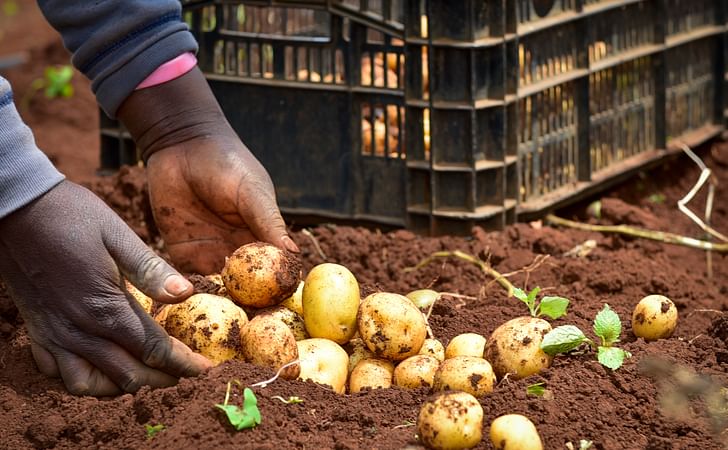Introduction
The Kenya Plant Health Inspectorate Service (KEPHIS) has announced a groundbreaking development for the potato industry. Three of Solynta’s hybrid true potato varieties have received approval for commercial release in Kenya. This significant step marks a new era for Kenyan potato growers, promising reliable, economical, delicious, and resilient potato varieties that can transform the industry.
The Approved Varieties
The approved hybrid potato varieties—SOLHY007, SOLHY012, and SOLHY015—are set to revolutionize potato farming in Kenya. These varieties, developed using non-GMO hybrid breeding technology in the Netherlands, will be sold as true seeds and seedlings grown from these seeds through local partnerships. This innovative breeding platform, pioneered by Solynta, introduces a novel approach to cultivating potatoes that promises numerous benefits.
Benefits of Solynta’s Hybrid Varieties
One of the standout features of Solynta's hybrid varieties is their resistance to late blight, a notorious disease that severely impacts potato yields. By incorporating multiple resistant genes, Solynta's potatoes can significantly reduce crop losses, thereby ensuring more stable and abundant harvests for farmers.
Economic and Practical Advantages
The true potato seeds from Solynta offer a more economical and practical solution for farmers. Unlike traditional tubers, which are bulky and susceptible to disease, Solynta’s seeds are disease-free, easy to store, and require only a small quantity to plant large areas. Specifically, just 25 grams of Solynta’s seeds can cover the same area that would typically need 2,500 kilograms of tubers, presenting a massive logistical and economic advantage.
Expansion Plans and Local Impact
Solynta plans to distribute these approved hybrid varieties across Kenya, ensuring widespread access ahead of the next growing season. By working closely with African farmers, distributors, and major processing companies, Solynta aims to support the entire potato value chain, enhancing both productivity and profitability for local growers.
Field-Testing and Adaptation
Over the years, Solynta has rigorously field-tested these hybrid varieties in various African countries, including Kenya, Egypt, Namibia, and South Africa. This extensive testing ensures that the seeds are well-suited to different environmental conditions and can thrive in the diverse agricultural landscapes of the continent.
Addressing Challenges and Promoting Stability
One of the primary challenges faced by Kenyan potato growers is the limited access to clean and reliable starting material. Solynta’s true potato seeds directly address this issue, providing a sustainable and effective solution that can enhance food security and farmer livelihoods.
Support from Local Authorities
Wachira Kaguongo, the chief executive of the National Potato Council of Kenya, expressed strong support for Solynta’s innovative seeds. He highlighted the potential of these seeds to solve many of the challenges faced by farmers, ensuring stability and growth within the industry. “We remain dedicated to further supporting the entire potato value chain in Kenya and contributing to a more secure and prosperous future for the nation,” Kaguongo stated.
Future Vision and Commitment
Solynta’s commitment to the potato industry in Kenya and across Africa extends beyond the introduction of new seed varieties. The company is dedicated to building a resilient and prosperous potato industry that can withstand the challenges of climate change, disease, and economic pressures.
Ongoing Research and Development
The success of Solynta’s hybrid true potato seeds is a testament to the company’s ongoing research and development efforts. By continually innovating and adapting to the needs of farmers, Solynta aims to provide sustainable and effective agricultural solutions that can support food security and economic growth.
A New Era for Kenyan Potato Farming
The approval of Solynta’s hybrid true potato seeds by KEPHIS marks a significant milestone for the potato industry in Kenya. With the introduction of SOLHY007, SOLHY012, and SOLHY015, Kenyan farmers now have access to resilient, economical, and high-yielding potato varieties that can transform their farming practices and improve their livelihoods.




